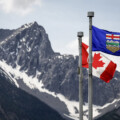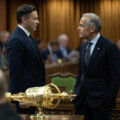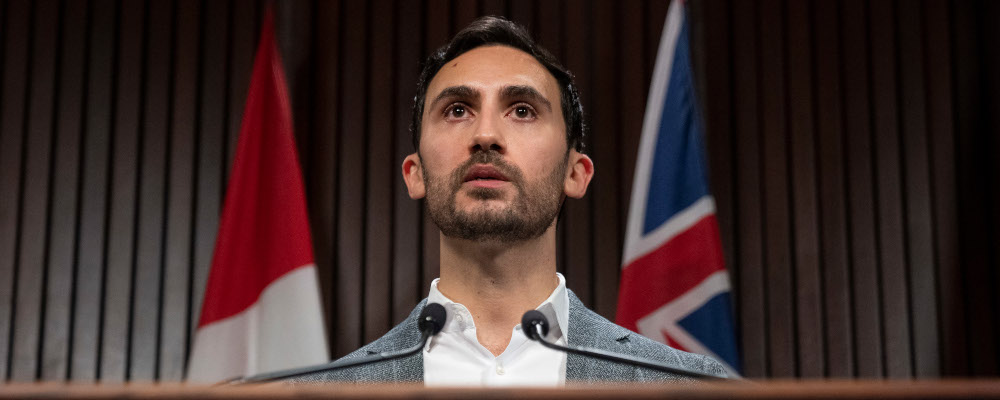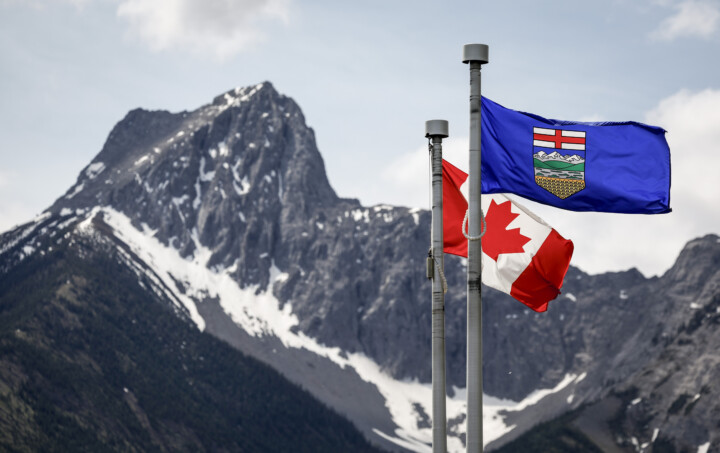Collective bargaining in Ontario’s education system has devolved into a pure power play. On Sunday, the Canadian Union of Public Employees provided the government with five-days notice of its intent to strike if a deal could not be reached. The government, in turn, tabled legislation imposing a contract, preventing educational assistants, early childhood educators, library workers, janitors, and other support staff from walking off the job.
There are plenty of people throwing around opinions on this issue—some good, some bad—but it’s helpful to keep in mind that, in public life as in real life, multiple things can be true at the same time. So, to help untangle all the threads in this complex situation, here is a list of things that are concurrently true.
Back-to-work legislation is inappropriate
It’s heavy-handed, in bad faith, and stands as a black mark against the provincial government. It’s like a pre-emptive nuclear strike in response to an ultimatum. The workers were not even on strike, and there were multiple days of bargaining left that might have resulted in an agreement. So, the government’s use of legislation flies in the face of the approach to bargaining laid out in Ontario law, not to mention the moral responsibility of parties to bargain in good faith. A strike was likely, but not inevitable. There isn’t a shred of evidence that can prove otherwise. We’ll now never know.
Back-to-work legislation is legal
While some argue that the legislation is unconstitutional, it’s not. Section 33 is part of our Constitution. You don’t have to like it, but it’s there. Technically speaking, the law is legal, though it may not be right.
Yes, there is a right to strike
The right to strike is an important part of balancing power between workers and employers. Laws protecting that right are good.
No, this isn’t about basic human rights
The right to strike is not a basic human right inherent in all human beings. It’s a positive, legal right created in history by courts and legislatures. Trade unions are institutions created in response to historically contingent circumstances, not timeless parts of our humanity. Collective association and action related to work can take many forms.
This is still important
Just because something doesn’t rise to constitutional status doesn’t mean we can shrug our shoulders and move on to talking about hockey. Legislation intended to shape just relations between workers and employers is critical to workers, employers, and society writ large. Rule of law —even lower laws—matters.
Be aware of unintended consequences
Conflating the right to strike with basic human rights might make governments more prone to use the notwithstanding clause to avoid constitutional challenges, as legal scholar Dwight Newman suggests here. It works like a nuclear arms race with both sides raising the stakes to gain an upper hand in the bargaining relationship.
Strike mandates don’t encourage collaborative collective bargaining
The strike mandate by CUPE’s members is a common practice, but that doesn’t mean it’s helpful. Such mandates have the same effect as placing a revolver on the table while negotiating a business deal. Strikes are a form of economic warfare where one party seeks to impose its will on another. And, particularly in cases where there will be collateral damage (more on that below), bargaining should happen in good faith without threats of coercion. Strikes are lesser forms of bad faith than pre-emptive legislation, but morally, they are in an analogous category.
These CUPE members are working class
They are not, by any stretch of the imagination, rich. At best, their salaries are half of what teachers make. So, in this case, any chatter about “fat-cat unions” is empirically untrue. This still holds even if they are better paid than their peers in the private sector. As we note in our recent paper on the working class, this population is often underappreciated and ignored in public policy and faces real challenges in making ends meet and in being able to provide for their families. One would have hoped that if hard economic lines were needed, they would be focused on wealthier parts of the system.
There was room for compromise
The government’s proposal of a 1.5-2 percent wage increase per year is too low. The union’s proposal of an 11.5 percent wage increase per year is too high.
The fairest wage increase remains a mystery
We’ll never know how much of a raise education workers should’ve received because one party is imposing its will on the other. See Point 1 above.
Ontario’s education system is uniquely plagued by strikes
There have been over 100 education strikes in Ontario, under ideologically different parties, since the right to strike was given by law in 1975.
The government is right to be concerned about the impact of strikes
School strikes are bad for kids’ education, and particularly bad for math scores. This has long-term negative implications.
A strike now would be especially bad
Children have already lost many school days due to COVID lockdowns. And test scores show massive challenges in math (the exact area most affected by strikes) as a result of those lost days. A strike would almost certainly worsen an already terrible situation.
Ontario’s education system is uniquely vulnerable to strikes
Governments of all stripes have increasingly centralized Ontario’s education system over the years. This leaves it at the mercy of province-wide labour disruptions. By building what is effectively a centrally controlled monopoly on education provision, the government itself is to blame for the concentration of the power it decries. It has the power to reshape the system. It has failed to distribute that power within the system.
It’s not just about workers and management
There are four primary players in this dispute: the government, the unions, the parents, and the children.
There’s a significant power imbalance
Only two of those players are able to exercise meaningful, tangible agency in this situation: the government and the unions. Parents and children are effectively powerless.
This is untenable and unjust
The people the entire system is supposed to serve—parents and children—are bystanders in a war between two hostile parties.
There’s a democratic deficit here
Casting a vote in provincial and board trustee elections is, at best, a diluted agency. It ignores how little power parents can exercise in key decisions related to their children’s education in their schools.
It doesn’t have to be this way
A more pluralist educational system—which gives various school options to families—would act as a check on strikes. An education system that had a range of provincially regulated and funded independent and public school board options would distribute power and place the balance of power in the hands of those who are currently powerless: parents. It would also remove significant parts of education, from the sphere of the state, and into the realm of civil society where it appropriately belongs.
This doesn’t have to mean lower wages
Alberta is arguably one of the most pluralist jurisdictions in Canada, yet it also has the highest teachers’ wages in the country, and educational assistants there earn as much or more on average than in Ontario. There’s no reason why this shouldn’t be the case for Ontario support workers.
Educational pluralism rebalances power
It’s time to give Ontario parents actual, tangible, agency over their kids’ education.
Educational pluralism is about fairness
Done properly, such a pluralist education system could allow for disproportionate funding to go to lower-income families who are limited to the schools in their neighbourhoods—which they may not like or may not work for their kids. Unlike wealthier Ontarians, they can’t move to neighbourhoods with stronger district schools.
This calls for a new approach
It’s time to trust Ontario’s parents and fix the broken approach to labour and education.
Recommended for You

Alberta Firewall: How the Alberta Agenda went from fringe to mainstream in 25 years

Party animal: A fascinating and frustrating look into the life of Pierre Trudeau’s political advisor

Why Indigenous ‘Reconciliation’ must have a finish line

Carney and Poilievre agree on Canada’s biggest problems—now what?: The Weekly Wrap



